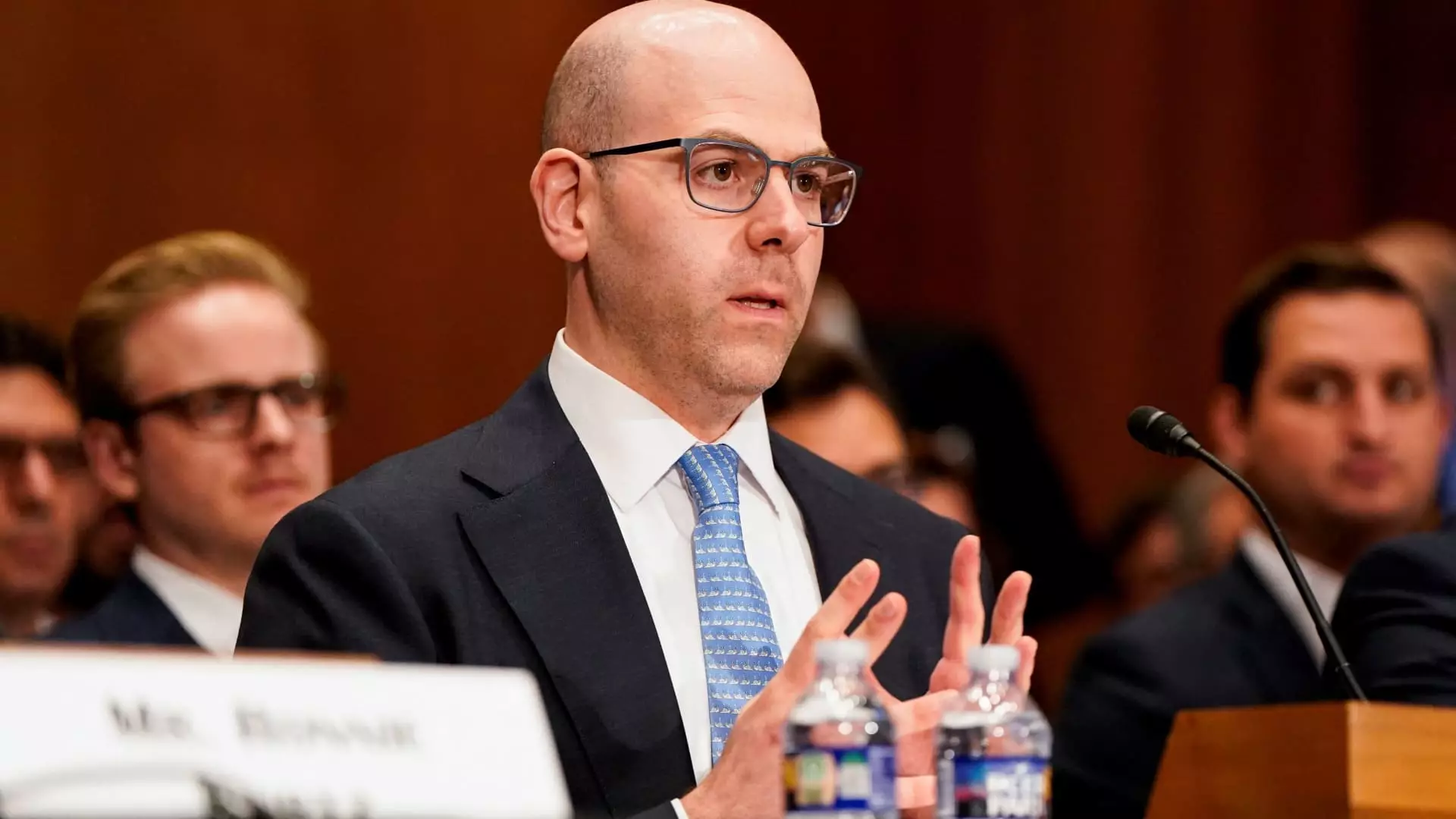The story of Federal Reserve Governor Stephen Miran’s recent public statements reveals a troubling reality about the independence of the United States’ central banking system. Despite formal structures designed to insulate monetary policy decisions from political influence, recent episodes expose cracks in this armor. Miran’s insistence that he made his vote independently and that his brief exchange with President Trump bore no influence underscores a narrative that might reassure the public—yet underlying tensions suggest otherwise. The very existence of political pressure, whether overt or covert, erodes trust in the technical integrity of the Fed’s decision-making process. It is crucial to recognize that independence is not merely a institutional myth but a necessary safeguard for economic stability. When political actors, especially a leader as outspoken as President Trump, openly call for aggressive rate cuts or target specific Fed officials, the process ceases to be purely economists’ domain. Instead, it becomes a contest of influence, risking decisions made based less on data and logic and more on political motivations. The veneer of independence begins to crack, casting doubt on whether the Fed’s actions genuinely serve long-term economic health or short-term political expediency.
The Impact of Political Interference on Economic Credibility
Historically, central banks have been relied upon as impartial guardians of economic stability. Their decisions, ideally, derive from careful analysis rather than political pressure. However, current events challenge this ideal. The Trump administration’s repeated attempts to push the Fed toward lower interest rates—often accompanied by public insults and threats—are prime examples. Miran’s choice to vote against the majority in favor of a larger rate hike, despite potential political implications, could be viewed as a stand for independence. Yet, the broader environment influences perceptions; it’s impossible to ignore the fact that the President has openly speculated about replacing Fed officials who dissent from his economic preferences. Such actions have a corrosive effect on the Fed’s reputation, undermining its credibility among markets and the public alike. Central banks must function on the basis of trust, and that trust diminishes when political actors are perceived to wield undue influence. The perceived erosion of independence introduces volatility and uncertainty into financial markets—outcomes that ultimately hurt the very economy the Fed seeks to bolster.
The Personal Costs and Political Calculus of Monetary Policy
Miran’s candid remarks about his future at the Fed and his willingness to resign if pressured beyond his current term reveal the personal dimensions of this political tug-of-war. His statements indicate a clear awareness that his professional integrity could be compromised or tested, especially if political pressure intensifies. The choice to speak publicly, especially on a platform like the Economic Club of New York, may be seen as an act of defiance or a bid for transparency. Nonetheless, it raises questions about whether such statements are enough to counteract the broader narrative of politicization. The personal risks faced by Fed officials in such a politically charged environment are significant; they serve as a barometer of how deeply intertwined economics and partisan interests have become. When officials feel compelled to clarify their independence publicly, it suggests a fissure in the underlying trust that should exist between policymakers and the public. This scenario is troubling because it indicates that the long-held belief in a technocratic, non-partisan central bank is increasingly fragile—challenged by the very political forces meant to be kept at bay.
The Future of the Fed in a Politicized Climate
Looking ahead, the challenges faced by the Federal Reserve are emblematic of a broader debate about the role of monetary policy within a politically turbulent landscape. The fact that figures like Miran are prepared to defend their independence publicly shows both resistance and the recognition of the importance of defying partisan pressures. Yet, the reality remains that political interference risks becoming normalized if not carefully checked. A central bank that succumbs to political influence loses its capacity to act as an unbiased arbitrator of economic stability, paving the way for policies driven more by electoral cycles than sound economic principles. For the center-left, this scenario is particularly alarming because it threatens to undermine the progress made in establishing credible, independent monetary institutions that balance growth with stability. The challenge lies in safeguarding these institutions from becoming pawns in partisan games, ensuring that economic policy remains rooted in data and long-term well-being rather than short-term political wins. The integrity of the Federal Reserve, and consequently the stability of the US economy, depends on reinforcing this independence—despite the pervasive political storms swirling around it.

